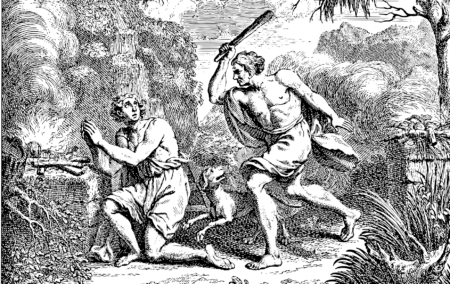Envy is a quiet but powerful force. It whispers, “If I cannot have what they have, neither should they.”
It hides in the shadows of fairness, pretending to seek justice and equality but leaving destruction in its wake. Imagine a small village where one farmer prospers more than the others. He rises before dawn to tend his fields. He experiments with new seeds and techniques. Over time, his hard work pays off, and his harvests flourish.
At first, the neighbours admire him. But as his success grows, so does their envy. Whispers start: “Why should he have so much more than the rest of us?” The whispers turn to anger. The villagers, convinced his success must have come at their expense, demand that his land and tools be taken and divided among them. They march to his fields, seize his tools, and claim his crops as their own. For a moment, they celebrate their new-found equality. But without the farmer’s knowledge, diligence and hard work, the fields wither. The tools rust. The harvest fails and the village is poorer than before. Yet the people feel a grim satisfaction. The successful man has been brought low, and no one is better off than anyone else. Envy, lurking in the shadows, has claimed another victim.
This story mirrors what has happened in South Africa. Envy has become a guiding principle in much of our politics and policymaking, not to inspire progress but to punish success. During Jacob Zuma’s presidency, billions of rands intended to uplift South Africa’s poorest citizens have been looted, redirected into luxury lifestyles, and wasted on corrupt deals.
These funds, meant to provide clean water, reliable electricity, functioning schools and decent healthcare, were stolen from the people who needed them most. Communities were left to crumble, their hopes stolen along with the money.
Yet Zuma retained the loyalty of many of those he harmed most. Like the villagers in the story, his supporters were convinced that his wealth was a victory for the group; a way to punish the elites or the so-called oppressors.
Tragedy of envy
Zuma’s rhetoric painted him as a man of the people, unfairly targeted by conspiracies and enemies of transformation. His personal enrichment was reframed as an act of resistance. This is the tragedy of envy: it blinds people to the harm being done to them, as long as it satisfies their desire to see others brought low.
The story of the farmer also echoes in South Africa’s broader policies. Black Economic Empowerment (BEE), for instance, was designed to address the injustices of apartheid, but has largely failed to deliver.
Like the villagers seizing the farmer’s tools, BEE policies often focus on redistributing existing wealth rather than creating new opportunities. Businesses are burdened with compliance requirements that favour a connected few while discouraging investment and innovation. The result is an economy that stagnates, leaving the fields untended and the harvests sparse.
The same destructive logic underpins South Africa’s labour laws. These laws, rooted in a suspicion of employers, make it costly and risky to hire or manage employees. This punishes small businesses, which are forced to limit growth or shut down entirely, and locks millions out of formal employment. Instead of encouraging prosperity, these laws assume that success must come at someone else’s expense and seek to limit the assumed plunder and the very success that creates jobs. As in the story, the tools rust, and the fields are left barren.
Perhaps the most dangerous manifestation of envy is expropriation without compensation (EWC). Like the villagers demanding the farmer’s land, proponents of EWC believe that taking property from one group and redistributing it to others will create equality. But property rights are the cornerstone of any thriving economy.
Without them, investment dries up, productivity collapses, and hunger follows. EWC does not uplift the poor; it ensures that everyone suffers equally, leaving South Africa poorer, hungrier, and more divided.
Brink of ruin
Envy has brought South Africa to the brink of ruin, but there is a way forward. As Helmut Schoeck argued in Envy: A Theory of Social Behaviour, the antidote to envy is aspiration. A society that celebrates success rather than punishes it can inspire growth, innovation, and prosperity.
South Africa must reject the politics of resentment and embrace policies that protect property rights, reduce burdens on businesses, and reward effort and ingenuity. Only then will the fields be tended again, the tools put to good use, and the harvests restored.
Envy destroys, but freedom builds. The choice is ours.
[Image: Gordon Johnson from Pixabay]
The views of the writer are not necessarily the views of the Daily Friend or the IRR.
If you like what you have just read, support the Daily Friend

